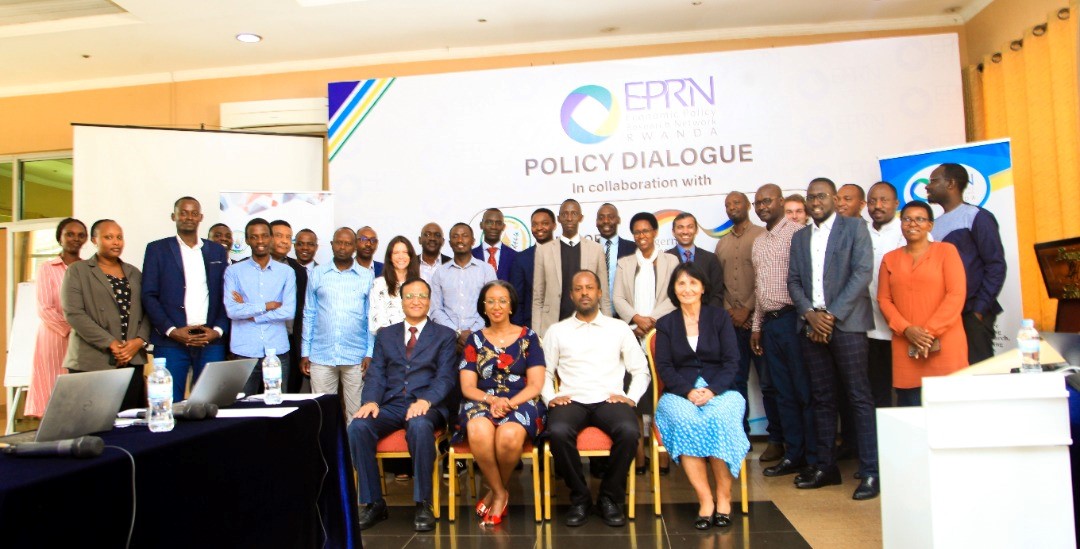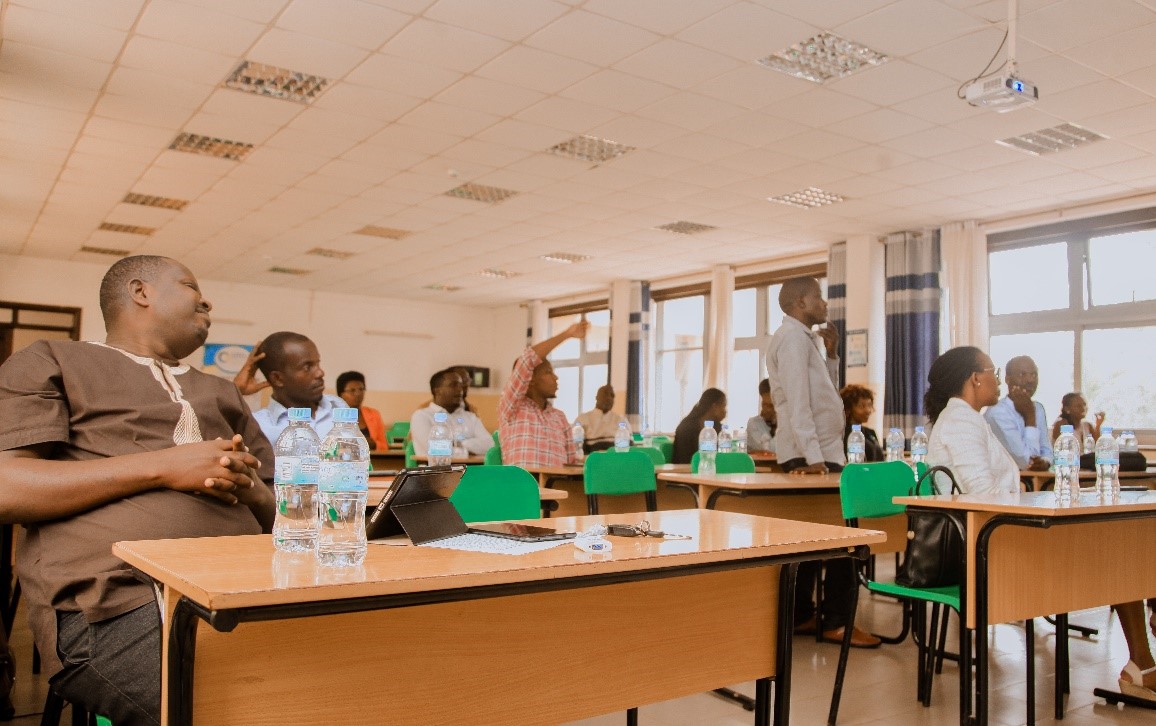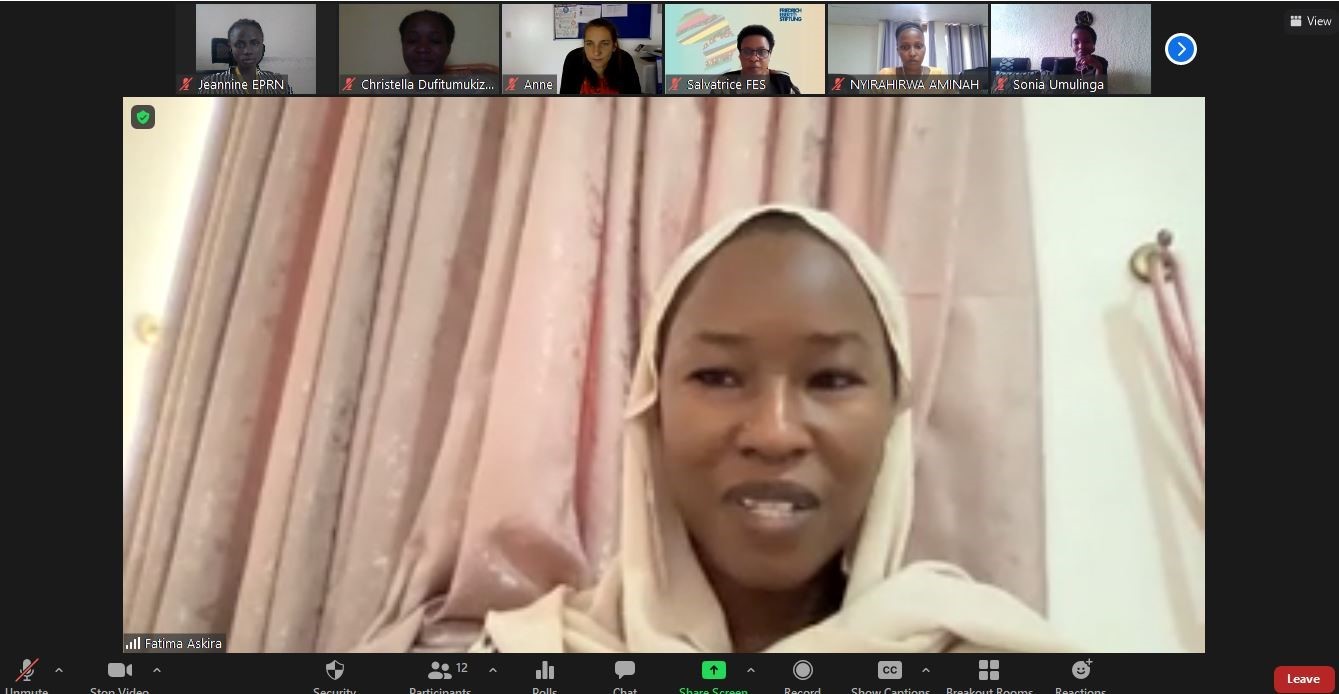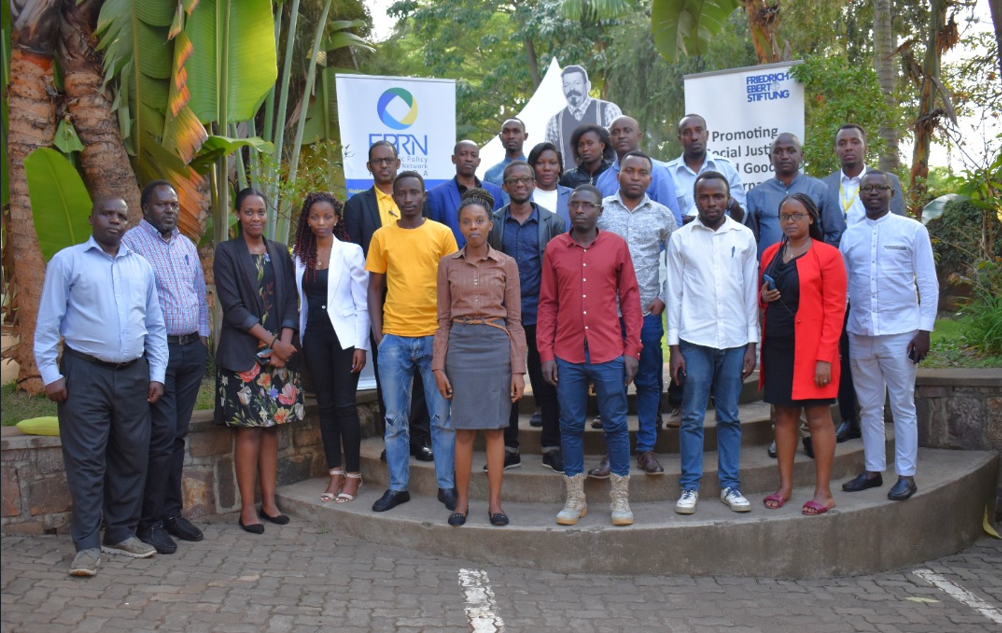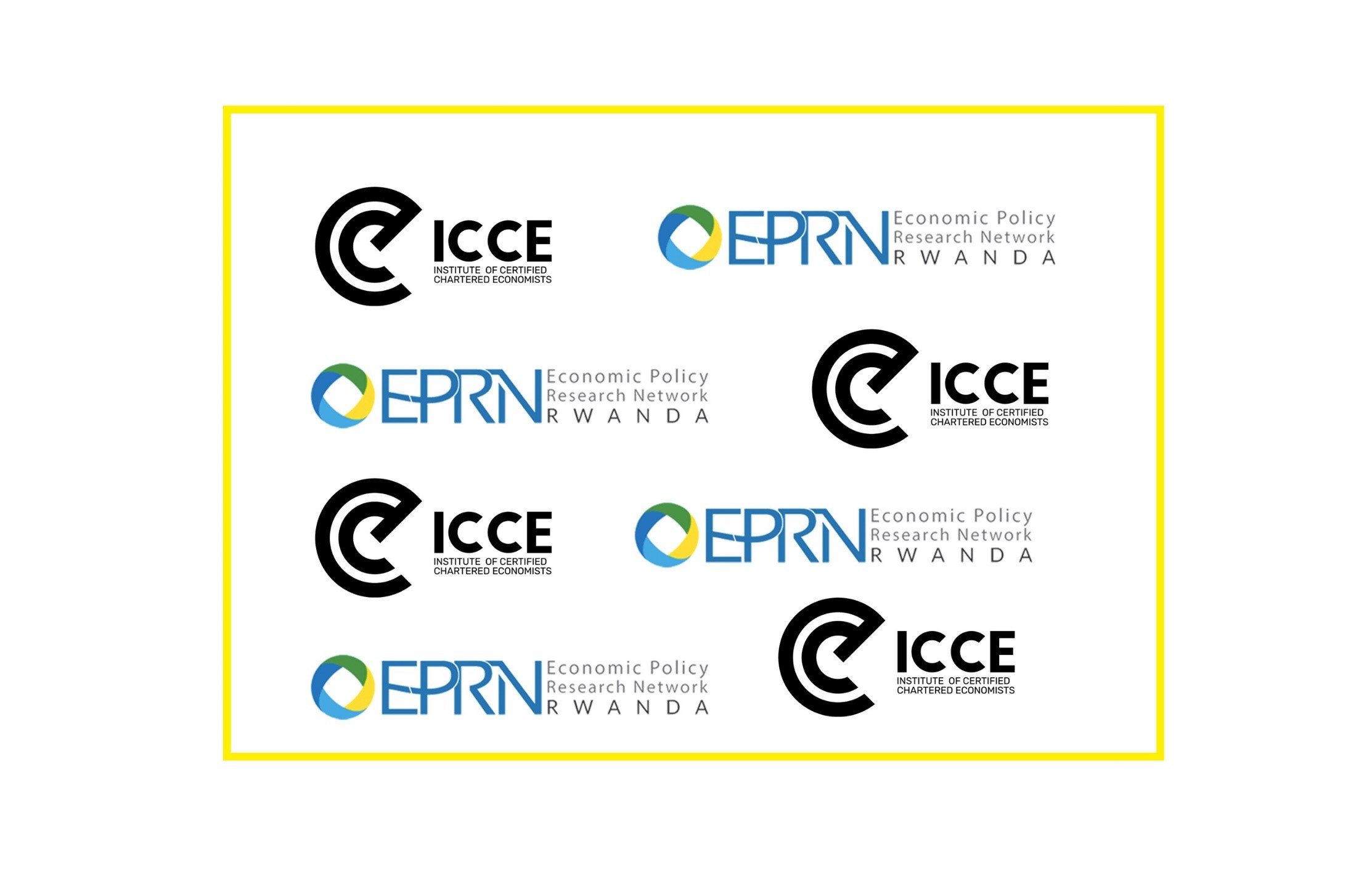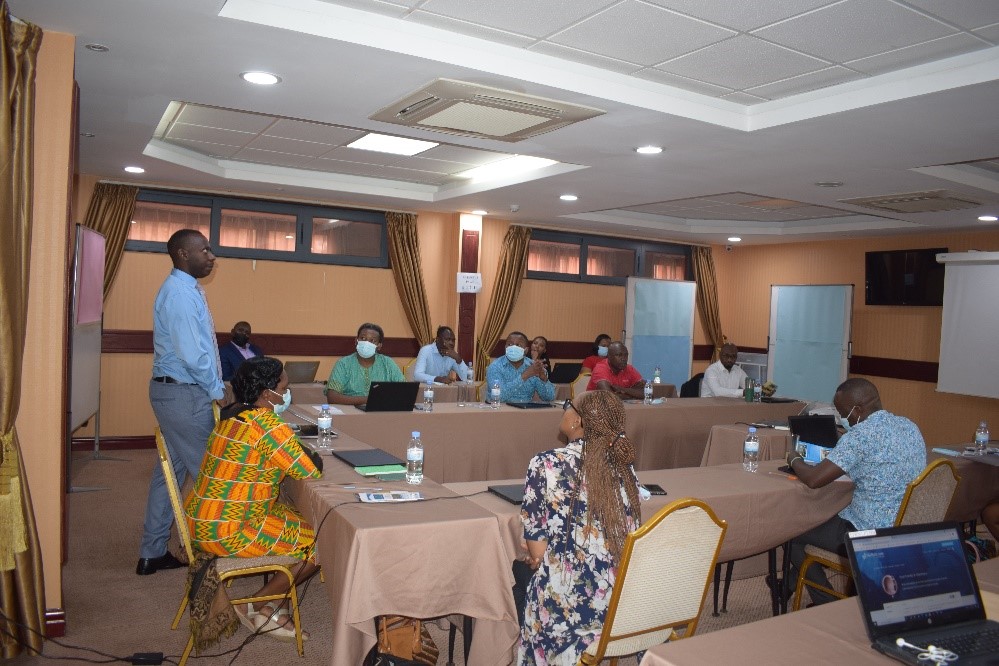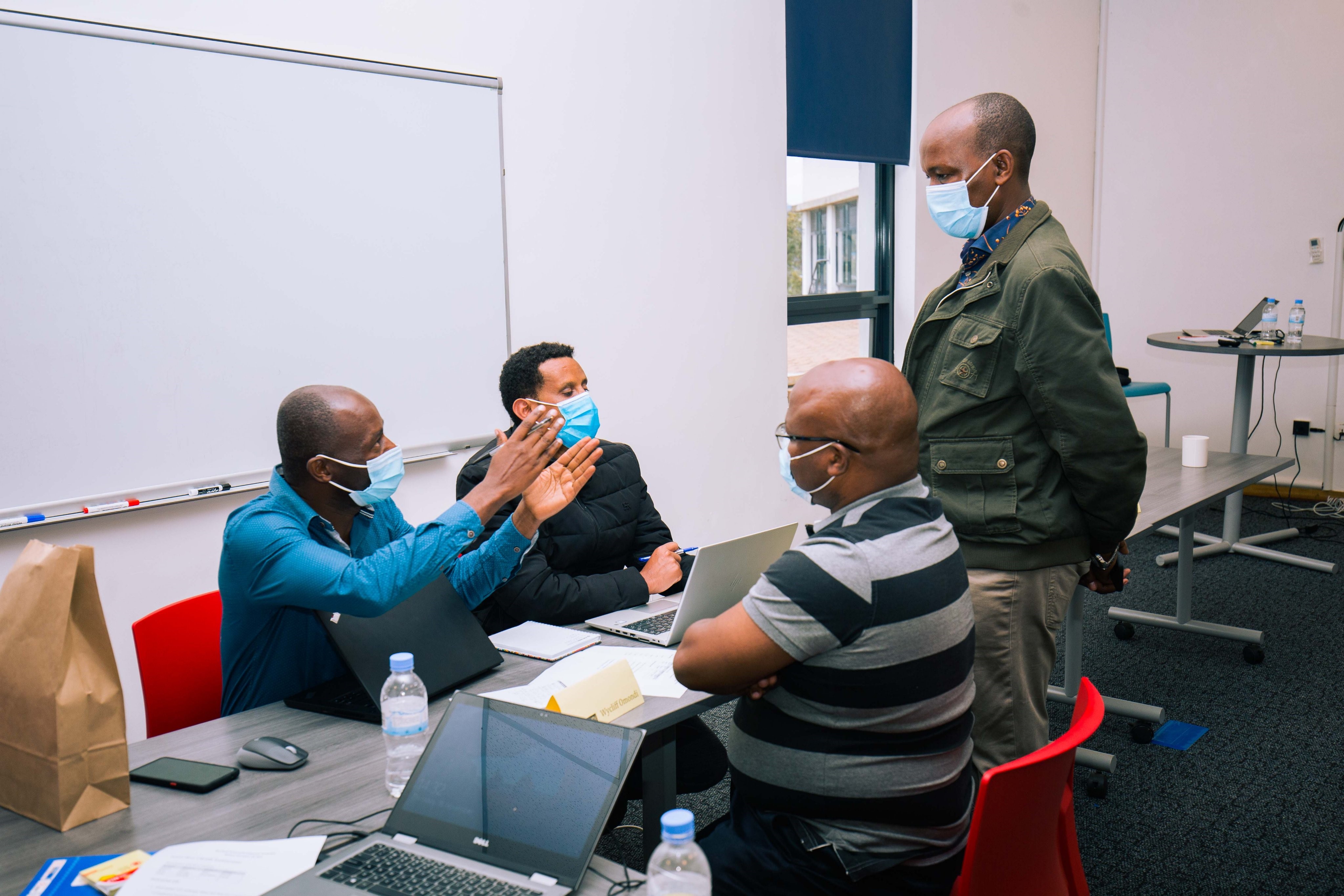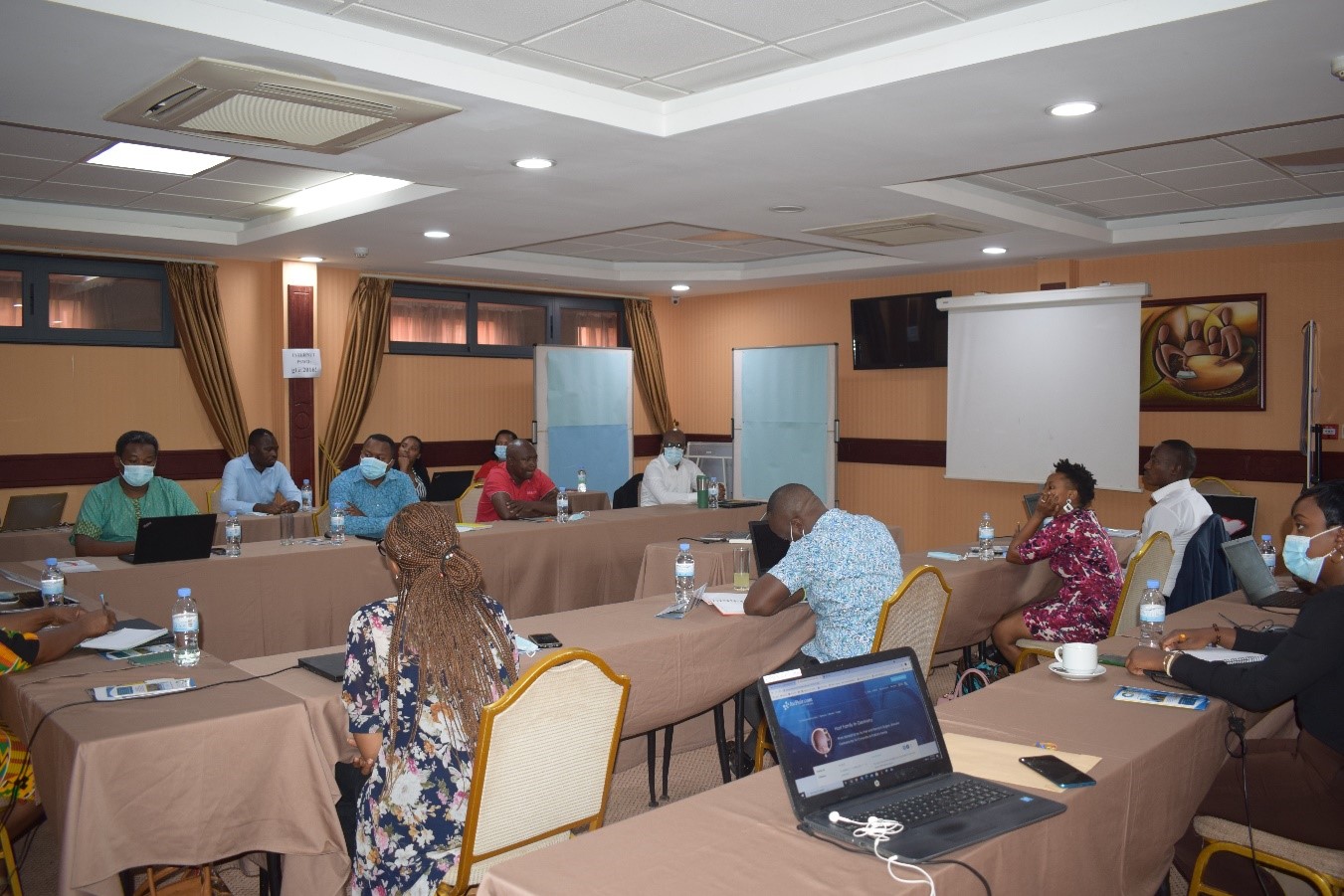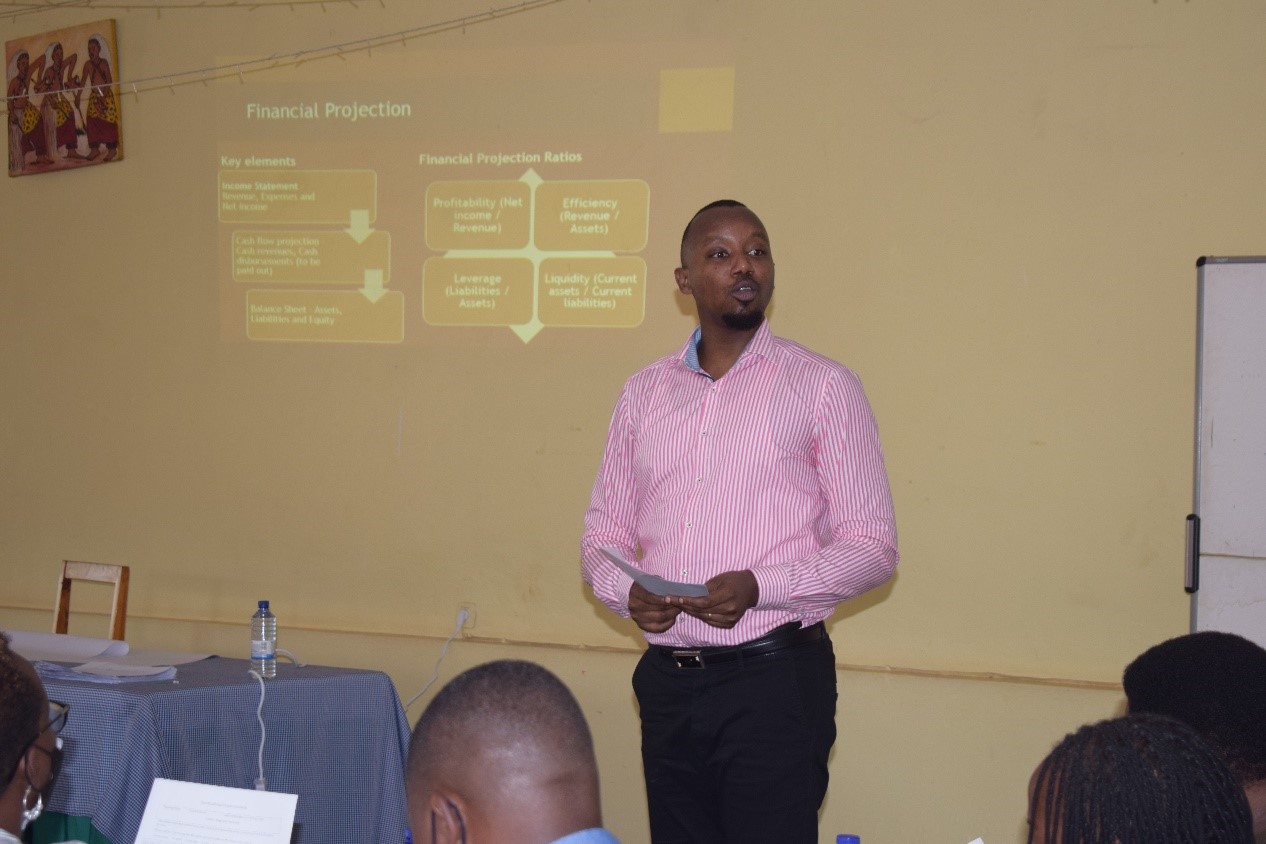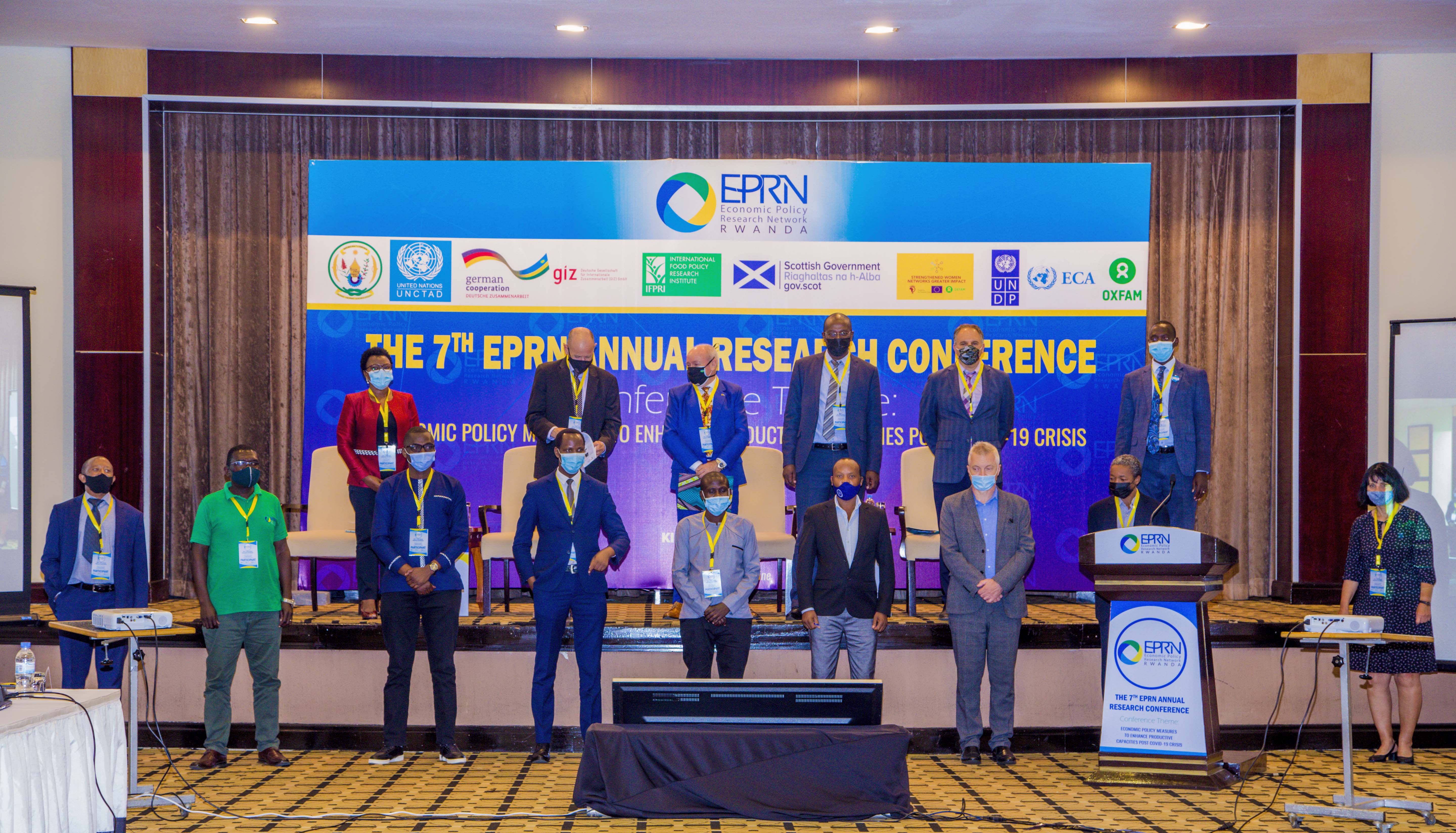PUBLIC LECTURE ON SUSTAINABLE DEVELOPMENT POLICYMAKING

13 March 2020 @UTB KIGALI
The 2030 Agenda and the Sustainable Development Goals - G20 Policy Issues andRecommendations
The Public lecture on “Sustainable Development Policymaking” was organized by the Economic Policy Research Network (EPRN) and Katharina Lima de Miranda attracted more than 150 students, lectures and EPRN members from UTB Kigali. This public lecture was held on 13 March, 2020 from 11am-1pm at UTB Kigali.
The public lecture started by the welcoming remarks of Represented of UTB Kigali. In his speech, he thanked EPRN for organizing this public lecture as it is a good opportunity not only for students but also for everyone who is in the field of economics and other areas.
EPRN Coordinator Seth KWIZERA delivered a presentation about the history of EPRN as an opportunity for students to learn more about current economic topics, linking students with professional researchers, internships, trainings, student competitions and stressed the significance of instilling a culture of doing research among Rwanda’s youth and thanked all the participants for their commitment to EPRN Research driven programs and encouraged more students to join EPRN.
Katharina Lima de Miranda presented about Sustainable Development Policymaking with the 2030 Agenda and the Sustainable Development Goals - G20 Policy Issues and Recommendations. She explained that Sustainable development meets the needs of the present without compromising the ability of future generations to meet their own needs and the 2030 Agenda for Sustainable Development is more than a set of goals and targets : it is a comprehensive “plan of action” that countries are translating into relevant policies. While this plan recognizes a need for different national paths towards the Sustainable Development Goals (SDGs), it also provides guidance for policymaking, establishing means of implementation and follow-up and review mechanisms that are indivisible from the SDGs. Moreover, analyzing the 2030 Agenda as a framework for policymaking reveals general principles that are both explicit and implicit in the UN’s Transforming Our World document.
She said that the 2030 Agenda’s means of implementation and follow-up and review mechanisms to reveal eight general principles for policymaking that are relevant to any SDG or policy sector. These principles range from rights-based and gender approaches, on the one hand, to strategic planning and results-based management, on the other hand. These principles have been gradually incorporated into the discourse of UN and OECD global development frameworks, from the 1972 Stockholm Conference to the adoption of the 2030 Agenda in 2015, and including Agenda 21, the OECD’s International Development Goals, and the Millennium Declaration.
In her explanations, The G20 (or Group of Twenty) is an international forum for the governments and central bank governors from 19 countries and the European Union (EU). The G20 should promote global paradigm change by promoting fundamental and consonant economic, social, political and environmental changes to address major global challenges, from climate change to financial crises Then 2030 Agenda builds the umbrella for this process and calls for all countries to mobilize efforts to end all forms of poverty, fight inequalities and tackle climate change, while ensuring that no one is left behind
In this regard it should be stressed that the development goals have to be addressed with a systemic view recognizing that ending poverty must go hand-in-hand with strategies that build economic growth and addresses a range of social needs including education, health, social protection, and job opportunities, while tackling climate change and environmental protection
She recommended developing countries face challenges in using cross-border capital flows to fund investments in sustainable development, International financial institutions have a key role to play in minimizing risks to developing economies while ensuring more efficient allocation of public and private capital and developing National Agendas in Order to Achieve Gender Equality in Education (SDG 4).
The participants demonstrated much interest by discussing to different questions and to join the EPRN Rwanda because they have realized that any field of study will need this network for any kind of data analysis.





